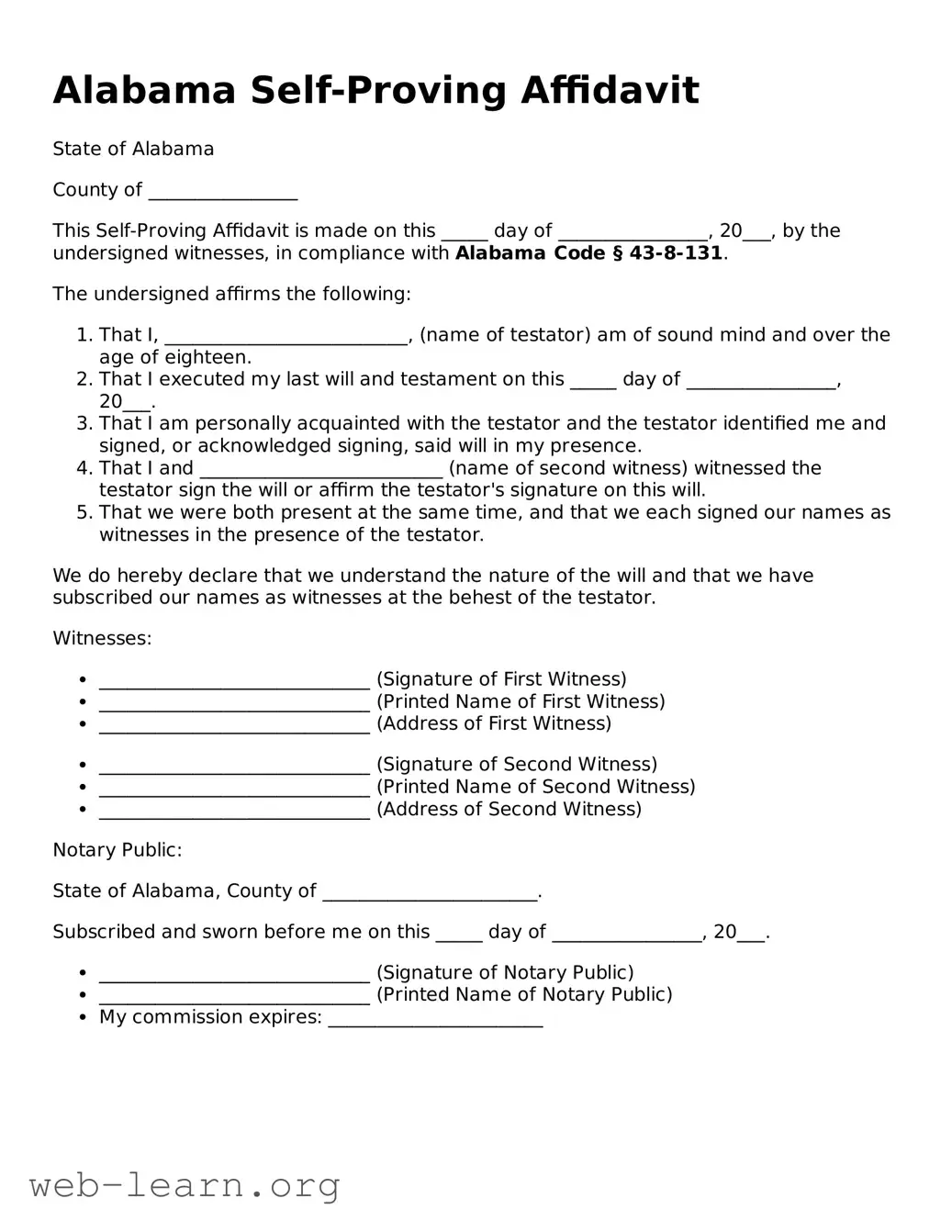Alabama Self-Proving Affidavit
State of Alabama
County of ________________
This Self-Proving Affidavit is made on this _____ day of ________________, 20___, by the undersigned witnesses, in compliance with Alabama Code § 43-8-131.
The undersigned affirms the following:
- That I, __________________________, (name of testator) am of sound mind and over the age of eighteen.
- That I executed my last will and testament on this _____ day of ________________, 20___.
- That I am personally acquainted with the testator and the testator identified me and signed, or acknowledged signing, said will in my presence.
- That I and __________________________ (name of second witness) witnessed the testator sign the will or affirm the testator's signature on this will.
- That we were both present at the same time, and that we each signed our names as witnesses in the presence of the testator.
We do hereby declare that we understand the nature of the will and that we have subscribed our names as witnesses at the behest of the testator.
Witnesses:
- _____________________________ (Signature of First Witness)
- _____________________________ (Printed Name of First Witness)
- _____________________________ (Address of First Witness)
- _____________________________ (Signature of Second Witness)
- _____________________________ (Printed Name of Second Witness)
- _____________________________ (Address of Second Witness)
Notary Public:
State of Alabama, County of _______________________.
Subscribed and sworn before me on this _____ day of ________________, 20___.
- _____________________________ (Signature of Notary Public)
- _____________________________ (Printed Name of Notary Public)
- My commission expires: _______________________
